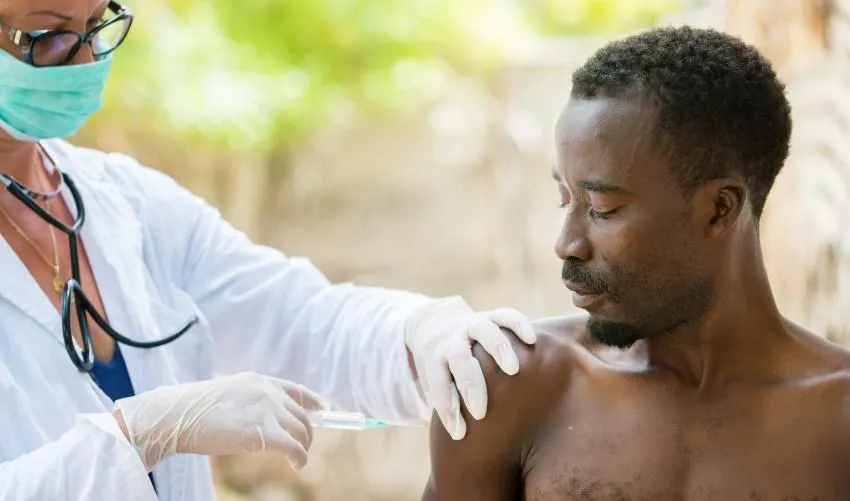
The Science of Altruism: Why We Should Give Vaccines to Developing Countries
On 24 February, 600,000 doses of COVID vaccine arrived at Accra, Ghana, as a first accomplishment of the COVAX initiative, intended to deliver 2bn doses to developing countries by the end of 2021. The humanitarian motivations of such a scheme are well understood and there is no doubt that it will contribute to containing the global toll of the pandemic. Now a working paper by Alessia Melegaro, Director of Bocconi COVID Crisis Lab, and nine co-authors from European and American universities, shows that this kind of altruism can also meet donor countries' self-interest.
Using a network Susceptible-Infected-Removed (SIR) model, Prof. Melegaro and her co-authors show that there are circumstances in which it is in a country's self-interest to ensure other countries can also obtain a COVID-19 vaccine rather than focusing only on vaccination of their own residents.
In this kind of model, the spread of the infection depends on R0, i.e. the number of secondary cases that can be generated by one single infectious case, and by the share of susceptible (i.e. not immune) people. Herd immunity, a condition that prevents the infection to spread, is reached when the share of protected individuals is above a certain threshold ð‘ƒð‘ = 1 − 1/ð‘…0. The higher the R0, the larger the proportion of individuals in a population who must be vaccinated to reach the herd immunity level.
The authors run simulations of how many people could be infected in the US if cases of COVID were imported from foreign countries under different conditions, depicting a scenario in which a population with low immunity levels experiences an internal outbreak that may then travel to other countries through individuals' mobility patterns.
In the case in which the US has reached herd immunity, but the foreign country is only close to this result (with 45% of susceptible population vs. the 35% herd immunity threshold), using the vaccine in the US would reduce deaths by around two thirds, but donating it to the foreign country would prevent the spillover altogether by preventing the domestic outbreaks that would later spread to the US. In this case, cooperative actions would allow for a reduction in the spread of the disease in the US.
If both the US and the foreign country are far from herd immunity, on the contrary, domestic allocation is more efficacious for protecting the domestic population because it allows the US to more rapidly achieve herd immunity.
Cooperative strategies, the authors conclude, are particularly effective when the donor country has reached herd immunity and the foreign country is close to it, thus making the additional doses decisive for reaching the goal.
"Importantly," Prof. Melegaro adds, "as vaccination becomes widespread in rich countries, where the burden of COVID-19 disease is currently highest, a cooperative and altruistic strategy will allow not only these countries to keep their international borders open and avert economic losses inherent to border closing, but also low and middle-income countries to be in a better position to contain the local and global spread."
Tiziano Rotesi, Paolo Pin, Maria Cucciniello, Amyn A. Malik, Elliott E. Paintsil, Scott E. Bokemper, Kathryn Willebrand, Gregory A. Huber, Alessia Melegaro, Saad B. Omer, "National Interest May Require Distributing COVID-19 Vaccines to Other Countries", medRxiv 2021.01.11.21249610; doi: 10.1101/2021.01.11.21249610.